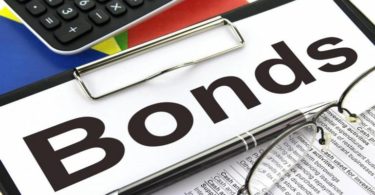This article was originally posted here
In case you missed the memo, President Trump recently signed a $2 trillion stimulus package into law that includes, among other provisions, a one-time payment worth up to $1,200 for Americans whose incomes fall below a certain threshold. Given the number of people who are unemployed because of the COVID-19 crisis, that lump sum could serve as a lifeline, making it possible to pay bills and put food on the table at a time when money may be extremely tight.
The IRS is expected to make some of those stimulus payments as early as the week of April 13, which is good news for those who really need the money. But unfortunately, a large number of Americans may have to wait up to 20 weeks to get their hands on that cash.
The IRS needs your tax return and bank account details
Eligibility for the aforementioned stimulus payment will depend on your adjusted gross income as reported on either your 2018 or 2019 taxes. If you haven't yet filed your 2019 return, which may be the case now that the filing deadline has been pushed back all the way to July 15, your 2018 return will be used to figure out if you qualify. Furthermore, if you filed a tax return in either 2018 or 2019 and signed up to receive your refund via direct deposit, the bank account the IRS has on record is the account your stimulus payment will land in. You don't have to take any action or request that payment specifically.
Here's the problem, though: Not everyone files a tax return. Low-income households, for example, often aren't required to submit one and therefore don't. But without those returns and associated bank account details on file, there'll be no way to get those stimulus payments over to the people who most likely need them the most.
Furthermore, Americans who did file a tax return in either 2018 or 2019 but didn't include their bank account details — say, they received a refund check in the mail — will need to provide bank account information in order to receive a stimulus payment fairly quickly. The government plans to set up a website where filers can input that information, but as of this writing, it doesn't exist. As such, if your tax or bank account information is not already on file with the IRS, you may see your stimulus payment much later than April.
So what can you do to ensure that you don't miss out on a stimulus payment? It's easy: If you haven't filed a tax return for the past two calendar years, submit your 2019 return today and include your bank account details. The IRS, in fact, is urging those who normally don't have to file to submit a simple tax return as quickly as possible.
Seniors on Social Security who typically don't file taxes don't have to take this added step, though — their eligibility to receive a stimulus payment will be based on their annual Social Security benefits statements. But otherwise, don't make the government hunt you down to get you your payment, or you may find yourself waiting much longer than necessary to collect that windfall.
Editor's Note:
The $54,072 Benefit Every Retiree Should See
There is a little-known way – hidden within the reams of public documents published by the Social Security Administration – that could let you collect up to an additional $54,072.
Let me repeat that: You could collect up to an EXTRA $54,072.
This surprising technique is spelled out in several public documents.
It can mean the difference between a comfortable retirement or years of struggle.
And yet most folks often miss it.
And that’s not the only income-boosting secret that has been buried by a mountain of bureaucratic paperwork and red tape…
You could also:
- Collect an extra $5,600 in Social Security benefits each year by filing two forms instead of one.
- Get up to $2,500 a month in tax free money from your county treasury office.
- Receive a $3,250 reward each year from the IRS.
- And TRIPLE your dividend income with a nearly forgotten group of stocks.
These are just a few of the secrets Ted Bauman has laid wide open in his new book, “Endless Income: 50 Secrets to a Happier Richer Life.”
And you could claim a copy free.
Whether it’s collecting rent without owning any property, keeping an extra $4,800 in your pocket each year with one of President Trump’s favorite tax breaks or getting paid $565 a month for keeping your nest egg safe … Ted reveals full details on 50 secrets the anyone can use for collecting nearly effortless extra income.
But you must claim your copy now.







